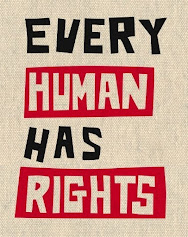On 13 February 2010 more than 10,000 protesters gathered in Dresden (D), determined to stop the annual biggest neo-nazi march in Europe.
The civil society alliance 'Dresden - Nazi Free', a broad initiative of the antifascist movement 'No Pasaran!', successfully stopped about 5,000 neo-nazis with an enclosing blockade strategy.
Finally, in 2010 antifascists succeeded to stop the annual neo-nazi march in Dresden that is organised under the guise of commemorating the victims of the air raids against the city of Dresden, 13-15 February 1945.
The 'Nazi Free' alliance - including different NGOs, political parties, labor unions, artists and individuals - called to blockade strategically important streets around Dresden's Neustadt train station, the gathering point of the neo-nazi manifestation. Despite the strong ambitions of the authorities to hinder the antifascist mobilizations under the slogan 'Blockade Together' already beforehand, thousands of anti-fascists came into Dresden's Neustadt to block all possible routes of the neo-nazi march with peaceful sit-ins. The police tried several times to clear the anti-fascist blockades, but their efforts failed and so the police ultimately was forced to cancel the neo-nazi march.
The aim of the protesters was to prevent the annual 'mourning march' of thousands of neo-nazis in Dresden and to discourage them from planning future marches. 'It was not easy - there were people injured in nazi attacks and it was horribly cold, but it was worth it' stated the Alliance spokeswoman.
Beside the 'Dresden - Nazi Free' alliance a second initiative, 'Remember - Remind - Act' under the patronage of Dresden's mayor Helma Orosz, called for a human chain as a symbolic wall around the city centre of Dresden to set a sign against right-wing extremism. Ms Orosz openly condemned the neo-nazi thugs and their misuse of the commemoration date for their revisionist propaganda, describing the allied bombardment as a 'bombing Holocaust'.
It was the diversity of protest actions that mobilized so many people from a broad spectrum of society, which was crucial to the success of stopping the neo-nazis.
More information:
http://www.euronews.net/newswires/157187-german-neo-nazis-mark-wwii-raid-in-dresden
http://jta.org/news/article/2010/02/14/1010617/neo-nazi-march-blocked-in-dresden
http://www.dw-world.de/dw/article/0,,5245414,00.html
http://www.demotix.com/news/250733/neo-nazis-dresden-during-65th-anniversary-world-war-ii-bombing
Alliance 'Dresden - Nazi Free': http://www.dresden-nazifrei.com
Initiative 'Remember - Remind - Act': http://www.13februar.dresden.de
The civil society alliance 'Dresden - Nazi Free', a broad initiative of the antifascist movement 'No Pasaran!', successfully stopped about 5,000 neo-nazis with an enclosing blockade strategy.
Finally, in 2010 antifascists succeeded to stop the annual neo-nazi march in Dresden that is organised under the guise of commemorating the victims of the air raids against the city of Dresden, 13-15 February 1945.
The 'Nazi Free' alliance - including different NGOs, political parties, labor unions, artists and individuals - called to blockade strategically important streets around Dresden's Neustadt train station, the gathering point of the neo-nazi manifestation. Despite the strong ambitions of the authorities to hinder the antifascist mobilizations under the slogan 'Blockade Together' already beforehand, thousands of anti-fascists came into Dresden's Neustadt to block all possible routes of the neo-nazi march with peaceful sit-ins. The police tried several times to clear the anti-fascist blockades, but their efforts failed and so the police ultimately was forced to cancel the neo-nazi march.
The aim of the protesters was to prevent the annual 'mourning march' of thousands of neo-nazis in Dresden and to discourage them from planning future marches. 'It was not easy - there were people injured in nazi attacks and it was horribly cold, but it was worth it' stated the Alliance spokeswoman.
Beside the 'Dresden - Nazi Free' alliance a second initiative, 'Remember - Remind - Act' under the patronage of Dresden's mayor Helma Orosz, called for a human chain as a symbolic wall around the city centre of Dresden to set a sign against right-wing extremism. Ms Orosz openly condemned the neo-nazi thugs and their misuse of the commemoration date for their revisionist propaganda, describing the allied bombardment as a 'bombing Holocaust'.
It was the diversity of protest actions that mobilized so many people from a broad spectrum of society, which was crucial to the success of stopping the neo-nazis.
More information:
http://www.euronews.net/newswires/157187-german-neo-nazis-mark-wwii-raid-in-dresden
http://jta.org/news/article/2010/02/14/1010617/neo-nazi-march-blocked-in-dresden
http://www.dw-world.de/dw/article/0,,5245414,00.html
http://www.demotix.com/news/250733/neo-nazis-dresden-during-65th-anniversary-world-war-ii-bombing
Alliance 'Dresden - Nazi Free': http://www.dresden-nazifrei.com
Initiative 'Remember - Remind - Act': http://www.13februar.dresden.de







